The Israel-UAE Peace Is Changing The Middle East | Special Report
August 21-
What is happening in the Middle East? Why Arab countries are coming closer to Israel?
“Historic”; “A breakthrough”; “A game-changer”; “A betrayal”: there is no shortage of epithets for this month’s sudden announcement – by President Trump – that the United Arab Emirates (UAE) is to fully normalise its relations with Israel. 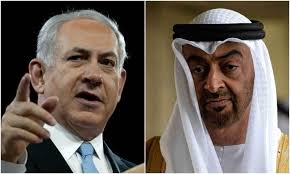
After Egypt’s peace treaty with Israel in 1979, followed by Jordan’s in 1994, this makes the UAE only the third Arab country to normalise relations. It is the first of the six Arab Gulf states to do so. Oman. Bahrain and possibly Morocco are widely expected to follow.
Discreet contacts between the UAE and Israel had been under way for years but still, the details and timing of this normalisation deal were kept secret right up to the last minute.
There were no consultations between the UAE foreign ministry in Abu Dhabi and its Arab neighbours. Almost everyone was taken by surprise, most of all the Palestinians, who called it “a stab in the back” since they have yet to come close to getting a state of their own or ending Israeli occupation.
“For the Palestinians, there is zero upside here,” comments Emile Hokayem from the London-based International Institute for Strategic Studies.
For the UAE’s de facto ruler Crown Prince Sheikh Mohammed Bin Zayed (known as MBZ), this deal is something of a gamble but one with the odds heavily in his favour.
The risk is it could make the UAE leadership highly unpopular in the wider Arab world where some social media postings have been calling it “a sell-out”. Were the Israeli Prime Minister Benjamin Netanyahu to renege on his promise to temporarily shelve annexation of parts of the West Bank then that would be extremely embarrassing for the Emiratis and possibly see the whole deal unravel.
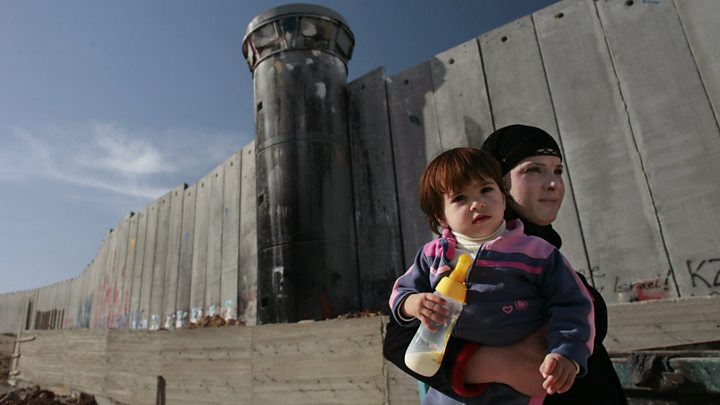
But such a move would also draw disapproval from the White House and besides, popular street protests are not usually tolerated in the Gulf.
“In the short term, the pitfalls for the UAE are very limited,” says Mr Hokayem. “This deal is not going to affect the UAE regime’s stability. It reflects the changing geopolitics of the region and it buys the UAE a lot of goodwill in the US, where its image has been tarnished by its involvement in the Yemen war.”
So what is behind this deal and what’s in it for this relatively young Gulf nation and former British protectorate that only became a sovereign nation in 1971?
In short, it is two things – strategic advantage and technology.
The UAE, along with Bahrain and Saudi Arabia, has a deep mistrust, even a fear, of its giant, heavily-armed neighbour across the water: Iran.
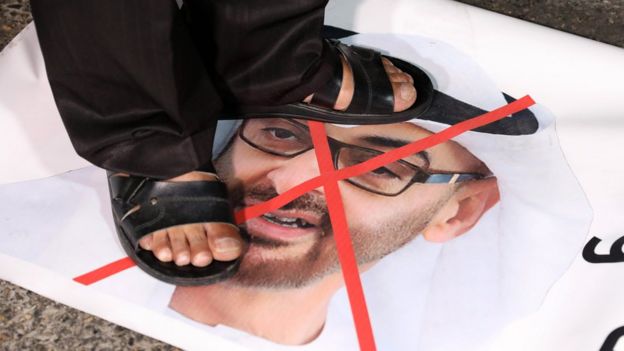 Image copyrightEPA
Image copyrightEPAGulf Arab leaders look at the map of the region and they note how, despite crippling sanctions, Iran’s strategic presence has advanced rapidly across the Middle East ever since the bulwark of Saddam Hussein’s regime was removed in Iraq.
Where once Iran was largely confined to its national borders, today it has proxy militias in Iraq, Syria, Lebanon and Yemen. Israel shares this concern, especially when it comes to Iran’s secretive nuclear programme.
Then there is what is known as “Islamism” or “political Islam”, a transnational concept often embodied by the Muslim Brotherhood and one which certain Gulf Arab rulers view as an existential threat to their dynastic monarchies. No-one dislikes the Muslim Brotherhood more fervently than the UAE crown prince and this has led to the UAE backing anti-Muslim Brotherhood factions as far away as Libya while seeing its interests clash increasingly with those of Turkey’s Islamist government.
In practice, this has led to the formation of an unofficial partnership of conservative Middle Eastern governments, a de facto club to which Israel, with its formidable intelligence capabilities, is now being admitted as an associate member.
And there is technology, including biotech, healthcare, defence and cyber surveillance. Here, the UAE already has form, having purchased Israeli-manufactured spyware some years ago to keep an eye on its own citizens. The UAE has deep pockets – it has vast oil reserves and a per capita GDP of nearly $40,000 (£30,000). It also has ambitions globally, and beyond, having just become the first Arab country to send a mission to Mars.
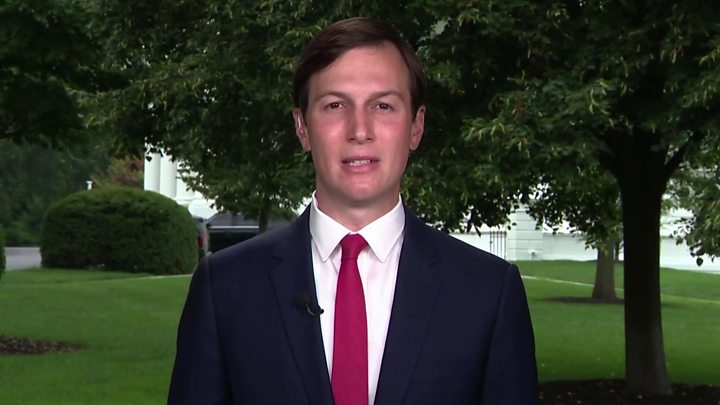
Israel is by far the most technologically advanced country in the Middle East, with cutting-edge inventions. If this alliance works out it could propel the UAE to a new level of prosperity and international prestige, while safeguarding future jobs for its citizens.
Israel’s overtures to the Gulf go back some way. In 1995, shortly before Israel’s Prime Minister Yitzhak Rabin was assassinated by a Jewish extremist, he sent his Foreign Minister Shimon Peres on an official visit to Oman and Qatar. Low-key Israeli trade offices then opened up in both countries’ capitals. I remember calling up their office in Muscat for a comment – the Israeli representative inadvertently answered the phone with the Hebrew greeting “Shalom” before quickly changing it to the Arabic “Salaamu aleikum”.
The trade initiative withered away after Mr Netanyahu became prime minister, Israel intervened in Lebanon and the second Palestinian intifada erupted. But more recently quiet diplomacy between Israel and the Gulf states has accelerated as a fear of Iranian expansionism has become the prime preoccupation.
Bahrain, Oman and Qatar may well follow the UAE if this month’s announcement passes without major incident.
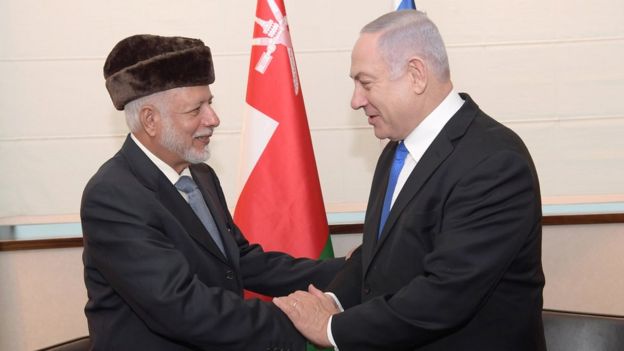 Image copyrightANADOLU AGENCY
Image copyrightANADOLU AGENCYSaudi Arabia may take longer. But back in 2002 it was the Saudis who launched the Crown Prince Abdullah Peace Plan at the Beirut Arab summit, offering Israel full recognition in exchange for a return to its pre-1967 borders.
The deal briefly put Israeli PM Ariel Sharon on the spot but days later Hamas carried out bombings and all talks were off. Today the Middle East is a very different place and what was then unthinkable is now a reality.
“Guess what were the most searched-for words online in the UAE immediately after the deal was announced?” said an Emirati official. “It was ‘hotels in Israel’. A lot of people can’t wait to visit!”
Watch Hananya Naftali
Courtesy: BBC and Hananya Naftali


